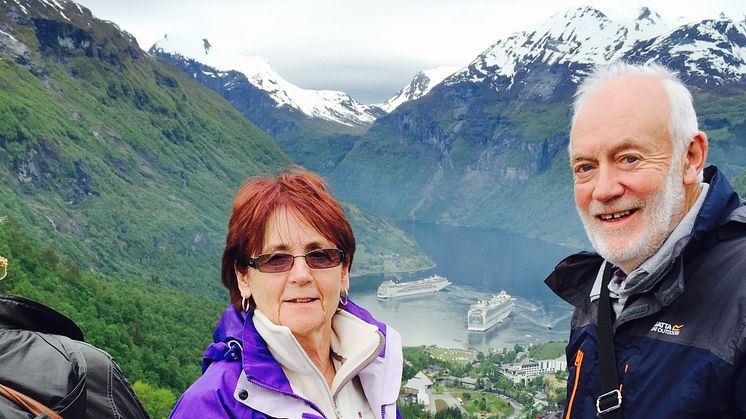
Press release -
Norfolk stroke survivor adds his voice to Lost for Words campaign
Norwich stroke survivor, David Barnston, 74, is one of the thousands of people living with communication difficulties after a stroke.
David had a stroke in December 2011. The stroke left David with a communication difficulty called aphasia. As a result, David struggles to talk, understand, read and write.
Janice, David’s wife, said: “Initially, as well as being unable to talk, read or write, David was also severely dyspraxic. This meant he was unable to coordinate basic tasks such as making a cup of tea.
“I was determined to help David. As soon as he was home from hospital, I started daily exercises with him to help improve his speech. We owe a lot of thanks to the help we received from the hospital’s Early Discharge team, and the Speech and Language department at the local community hospital too.
“Having aphasia can be very isolating, David loved to speak to people and I didn’t want him to feel trapped in his own home. David has made huge improvements and I’m so proud of him. He now chats to the postman about football using his iPad, he uses the bus, and meets his friends at the pub. He continues to garden and regularly looks after our grandson, Thomas. David also volunteers as an ‘aphasia expert’ at the University of East Anglia, helping students to understand more about the condition.
“David is a real inspiration in my eyes. He remains good humoured and gets on with life.”
The Stroke Association’s Lost for Words campaign aims to raise awareness of the challenges stroke survivors with communication difficulties can face, and help and support available.
Sara Betsworth, Head of Stroke Support at the Stroke Association, said: “After a stroke, around one in three people like Davidhave difficulty communicating, which can be both terrifying and isolating. But with the right help and support, many stroke survivors are able to find new ways to communicate, and can rebuild their lives.”
More than 350,000 people in the UK have aphasia, a communication disability which can be caused by stroke. The Stroke Association is urging people to show their support for stroke survivors who are lost for words and make a donation. For more information, visit www.stroke.org.uk/lostforwords.
Topics











